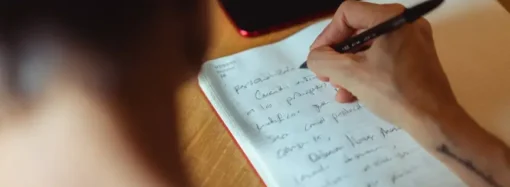A friend of mine recently told me that his daughter got an F on her college paper.
“Please don’t tell me she used AI to write it,” I said in disbelief.
“Well, no, she didn’t … but everyone else in the class did,” he replied, going on to say that the instructor accidentally lumped his daughter’s paper in with everyone else’s, but apologized profusely when confronted about the mistake.
It’s an amusing story, but have we really fallen so far that kids who actually use their brains and creative power to produce their own schoolwork are the miniscule minority?
Unfortunately, yes. As one college professor recently wrote on the Substack “Hilarius Bookbinder,” today’s students are functionally illiterate, bored with reading, unable to put together anything very close to an original thought, and in general, lazy and indifferent to learning. Such a situation can’t be good for the future of our society.
But let’s look on the bright side. If this many of today’s young people are lacking in ordinary intelligence, then those children in whom we actually cultivate wisdom and knowledge will be head and shoulders above the rest, promptly catapulted into leadership positions. The question is, where do we start, and what does real intelligence look like?
Twentieth century author and cultural commentator Bernard Iddings Bell set forth three simple principles in his 1949 book, “Crisis in Education.” “The liberal arts plus humanistic studies plus religion, that is a proper discipline for the potentially intelligent,” Bell wrote. “Nothing else can take its place.”
That’s a bit of a mouthful … so what do those three categories mean practically? And how can we put them into practice for our own children?
1. Liberal Arts
We generally only hear the phrase “liberal arts” in relation to a college degree, that piece of paper one gets after putting in four years of study in a variety of subjects. But in this sense, Bell’s reference to liberal arts is compatible with what we refer to today as classical education, the study of “grammar, rhetoric, logic … arithmetic, geometry, astronomy, and music.” Students who study these branches in classical learning first gain a solid understanding of facts – often through rote learning, song, and memory techniques – knowing how to “distinguish between opinion and fact and relate facts accurately.” They then must learn how to properly reason and form arguments from this factual knowledge, finally presenting them in persuasive, winsome ways.
“Such training is essential to sound thinking,” Bell writes. Perhaps that’s one reason why America’s founders were so successful in forming our nation – for they were trained in the essentials of classical education. So if we want our children to be like them, leading generations to greatness, then classical education is a reasonable path to follow.
2. Humanistic Studies
Humanistic studies, Bell intimates, is simply a fancy way of saying students should study the things “which throw … light on man and his behavior.” History, literature, fine arts, and philosophy are just some of the subjects which give insight into how man thinks and operates, giving inspiring examples to all who will listen:
From such studies as these he can learn something, if he will, not merely about the pathetic failures of man in the past and now, which knowledge breeds compassion, but also about the great successes that occasionally appear among the ruck of humanity, which knowledge rouses emulation. From such studies he can learn, if he will, how to live without scorn in the midst of pettiness. One who is trained in humane studies is the better fitted not merely to become a human being but also to become a wise leader of human beings.
3. Religion
While the first two elements for cultivating an intelligent student may be carried out in some schools today, those that do often completely miss this third aspect, Bell says. That’s unfortunate, because without training in faith, religion, and an understanding of God, the individual becomes puffed up, becoming “a leader who ruins both himself and those who trust him.”
“The only effective way to keep genius from going astray is for it to know and adore the Infinitely Great,” Bell concludes.
Why is it so important to incorporate these three aspects into our attempts to raise intelligent children? The reason is because these aspects are what lead individuals to know and understand the truth … which is also the only way out of cultural chaos and despair, Bell says:
[I]ntelligence becomes suddenly indispensable when a society is torn, as ours is, by manifold revolution. We begin to see that without the intelligent few to criticize, to furnish counsel, to help us understand, we are destined to sink under stress to the level of a cage of contending beasts. We begin to suspect that it is not enough to understand all things but the truth.
It is only knowing the truth about man that can make a culture safe or free….
Want to see our free culture continue? Then start raising an intelligent kid … and rest assured that it doesn’t take a genius to do it.
—
The republication of this article is made possible by The Fred & Rheta Skelton Center for Cultural Renewal.
Image Credit: Pexels
7 comments















7 Comments
eva
April 2, 2025, 3:14 pmGᴏᴏɢʟᴇ ʜᴀꜱ ʙᴇᴇɴ ᴀɴ ɪɴᴄʀᴇᴅɪʙʟᴇ ᴏᴘᴘᴏʀᴛᴜɴɪᴛʏ! ᴇᴀʀɴ 𝟣𝟪𝟢𝟢+ ʙᴜᴄᴋꜱ ᴡᴇᴇᴋʟʏ ꜰʀᴏᴍ ʜᴏᴍᴇ! ᴀ ꜰᴇᴡ ᴍᴏɴᴛʜꜱ ᴀɢᴏ, ɪ ᴡᴀꜱ ꜱᴛᴜᴄᴋ ɪɴ ᴀ ʀᴏᴜᴛɪɴᴇ, ʙᴀʀᴇʟʏ ᴍᴀᴋɪɴɢ ᴇɴᴅꜱ ᴍᴇᴇᴛ. ɴᴏᴡ, ɪ ᴇᴀʀɴ 𝟤𝟢𝟧+ ᴀ ᴅᴀʏ ᴡᴏʀᴋɪɴɢ ꜰʀᴏᴍ ʜᴏᴍᴇ ᴡɪᴛʜ ᴄᴏᴍᴘʟᴇᴛᴇ ꜰʟᴇxɪʙɪʟɪᴛʏ! ɴᴏ ᴇxᴘᴇʀɪᴇɴᴄᴇ? ɴᴏ ᴘʀᴏʙʟᴇᴍ.
REPLYᴊᴏɪɴ ɴᴏᴡ➤➤ http://Www.WorksProfit7.Com
Carrie Alfred
June 22, 2025, 9:14 amMy husband left me for another woman a few months ago and ever since then my life has been filled with pain and agony because my husband was my first love whom I have spent my entire life with. A friend and also a colleague from work told me he saw some testimonies of a spiritualist called Doctor Muna, he can bring back lover within some few days, Ridiculously, I laughed it out and said I am not interested but for the sake of friendship, she consulted this God sent man on my behalf and to my greatest surprise after 12 hours my husband called me for the very first time for over 7 months saying "I miss you babe and I'm so sorry for everything I made me went through" I couldn't say a word but cried over the phone and hanged up. We are back together and living Happily together again. To be honest, I still can’t believe it, because it’s highly unbelievable. Thank you DOCTOR MUNA for bringing back my love and also to my SELFLESS FRIEND. Laura, who interceded on my behalf. For anyone who might need help of this wonderful spiritualist here is the email address: [email protected], Also add him on WhatsApp: +2347035449257
REPLYmoolie
July 15, 2025, 4:44 pmWe can help you solve all HACKING RELATED PROBLEMS
●Hacking of all social media accounts
●Spying on cheating partner
●Retrieving of lost Cryptocurrency
●Data alteration
●Finding of lost phone
●Clearing/paying off of mortgage/loan
●Increasing of credit score
●Bitcoin mining
●Tracking of location
●Hacking of cell phone/other devices
●Block out or track down hackers
Secure yourself now!!!
Contact: [email protected]
REPLYWhatsApp: +1 (209) 809-0176
Telegram: +1 (209) 809-0176
moolie
July 16, 2025, 3:38 pmWe can help you solve all HACKING RELATED PROBLEMS
●Hacking of all social media accounts
●Spying on cheating partner
●Retrieving of lost Cryptocurrency
●Data alteration
●Finding of lost phone
●Clearing/paying off of mortgage/loan
●Increasing of credit score
●Bitcoin mining
●Tracking of location
●Hacking of cell phone/other devices
●Block out or track down hackers
Secure yourself now!!!
Contact: [email protected]
REPLYWhatsApp: +1 (209) 809-0176
Telegram: +1 (209) 809-0176
Winward Casino
August 24, 2025, 3:39 pmHello everyone! I recently started playing at Winward Casino AU and am thoroughly enjoying it. The interface is extremely user-friendly, the games run smoothly, and the winnings are genuine. The support team assisted me with my bonus immediately. I would recommend it to anyone who wants to relax and truly enjoy gaming.
REPLY